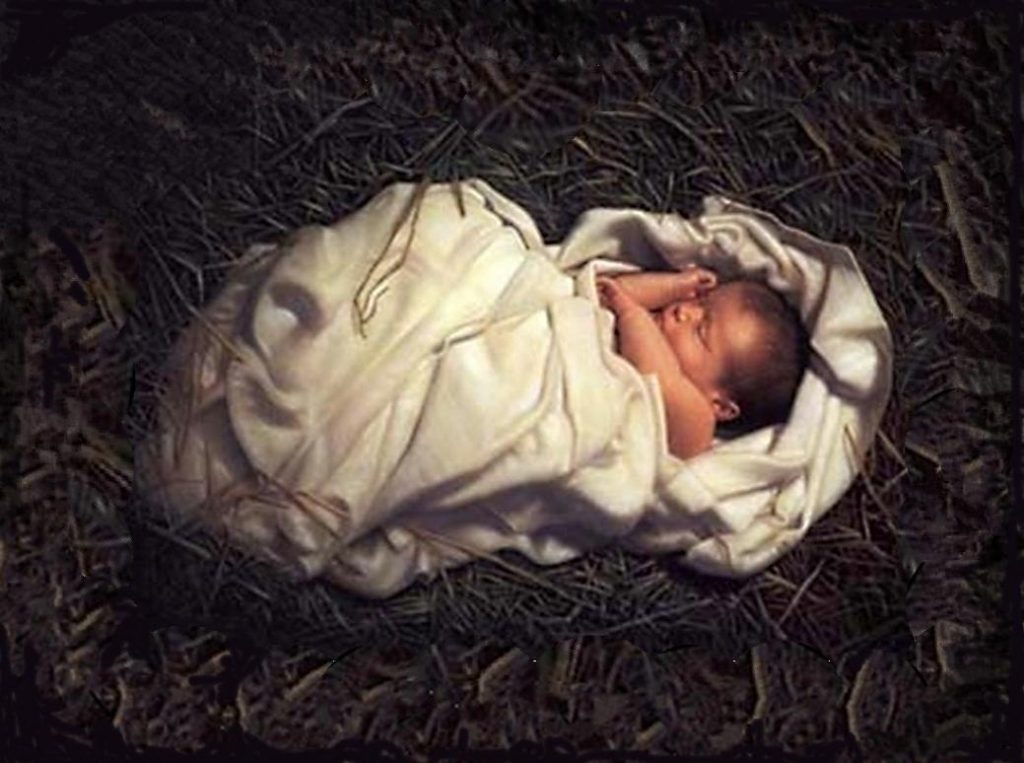
| In an 1883 collection of Christmas carols, Away in a Manger was called “Luther’s Cradle Hymn.” This note followed: “Composed by Martin Luther for his children and still sung by German mothers to their little ones.” Nice try. Today we know that James Murray of Cincinnati composed the tune in the late 1800s. No one has positively identified the author of the lullaby text, but it seems certain it wasn’t Martin Luther some 350 years earlier. That assertion was apparently a promotional gimmick designed to sell copies of the book. What no one doubts is that Away in a Manger has been the world’s most popular children’s carol for a very long time: Away in a manger, no crib for a bed, the little Lord Jesus laid down His sweet head. The stars in the sky looked down where He lay: the little Lord Jesus asleep on the hay. The cattle are lowing, the baby awakes; but little Lord Jesus, no crying He makes. I love Thee, Lord Jesus, look down from the sky, and stay by my cradle til morning is nigh. Be near me, Lord Jesus, I ask Thee to stay close by me forever, and love me, I pray. Bless all the dear children in Thy tender care, and take us to heaven, to live with Thee there. This rendition by the late John Denver, surrounded by children, speaks to the tender heart of this carol. That doesn’t mean that Away in a Manger should be confused with a theological term paper. Consider this line in the second verse: “The cattle are lowing, the poor baby wakes, but little Lord Jesus, no crying He makes.” It may be that the author is simply presenting a peaceful snapshot of the Nativity. But a great many people have taken these words to mean that Jesus was somehow the Amazing Non-Agitated Baby, even though he apparently had to share his quarters with a couple of bovine roommates. Real babies cry. And they soil their diapers. They spit up. They keep us awake at night. And sometimes they’re cranky and colicky for no discernible reason. What Scripture tells us is that Jesus was a real baby. He shared 100% of our humanity. It’s safe to assume he cried rather often. Because that’s what real babies do. Over the centuries, a number of would-be disciples have stumbled over another inference concerning Jesus’ birth: If Jesus was a “real infant,” that would mean he was vulnerable. Babies cannot defend themselves. They cannot run when there is trouble or danger. They cannot provide their own warmth or nourishment. Are we really supposed to believe that God the Son, the second person of the Trinity, was actually in danger from viruses, careless caregivers, or Herod’s infanticide squad? Wasn’t he endowed with super-powers that shielded him from harm? Christians would affirm that in some manner Jesus was providentially protected. After all, he grew up during a period of history when half of all little ones didn’t live to see their fifth birthday. But his security had nothing to do with supernatural bubble wrap – something all too evident when his body was bloodied by whips and pierced by nails. The good news is that because Jesus shares 100% of our humanity, nothing can happen to us that he hasn’t in some fashion personally faced. Which means all this weekend we’ll be in the presence of a Savior who knows what it means to cry. |
